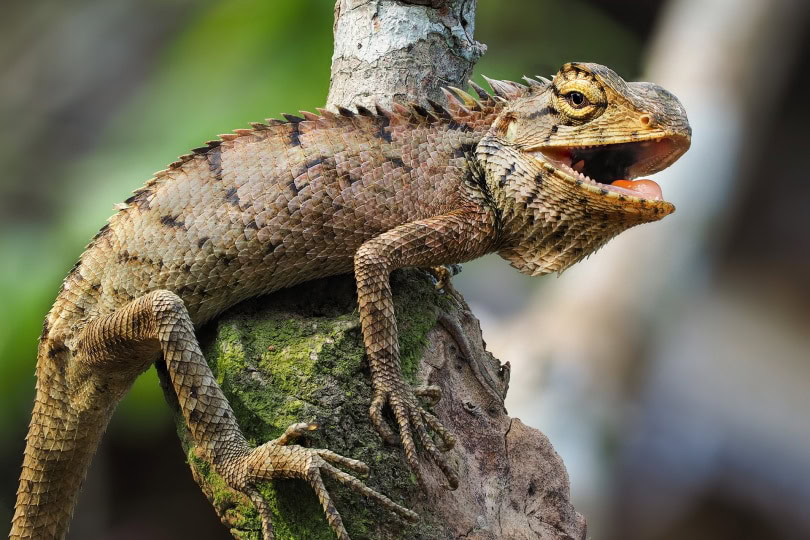Click to Skip Ahead
If you are thinking about getting an iguana as a pet in your home, you are likely trying to find out everything you can about it. One of the most common questions is what your iguana will eat. The short answer is that iguanas are herbivores and will primarily eat plants. However, their diet can be quite varied so keep reading if you would like to learn more about what plants are best to feed your pet and what they would eat in the wild.

What Do Iguanas Eat in the Wild?
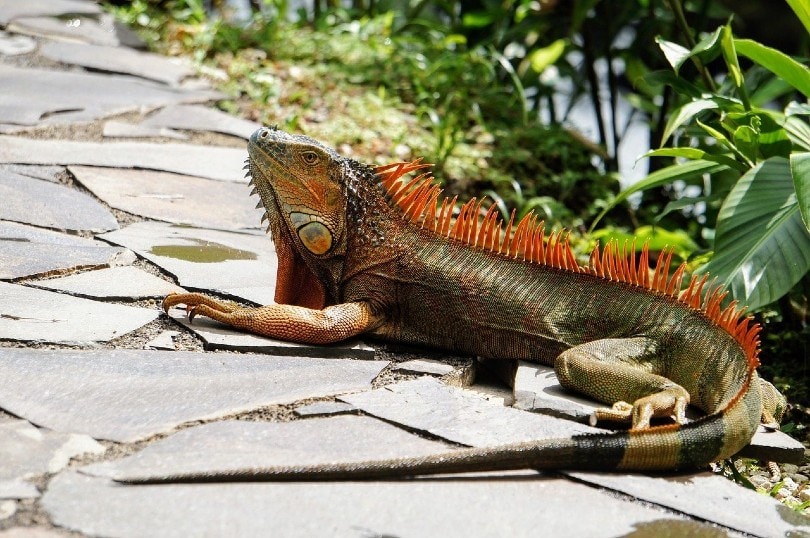
Wild iguanas are opportunistic herbivores, and the type of food they eat will primarily depend on what type of iguana it is and what plants are available nearby. Only in rare cases will an iguana eat eggs or insects.
Green iguanas are arboreal, which means they spend most of their lives high in a tree, so they will usually eat leaves, seeds, and fruit that the tree produces.
Desert iguanas will eat fruit and buds from any plants they can find in the hot environment, and marine iguanas spend most of their time in water and usually eat algae and any plants they find growing near the shore.
Other iguanas will do the same and eat plant matter they can easily find. However, it’s not unusual for the iguana to have a favorite food that it eats. For instance, green iguanas in Panama prefer to eat the common wild plum, and the desert iguana prefers to eat the yellow flowers from the creosote bush.
What Do Pet Iguanas Eat?
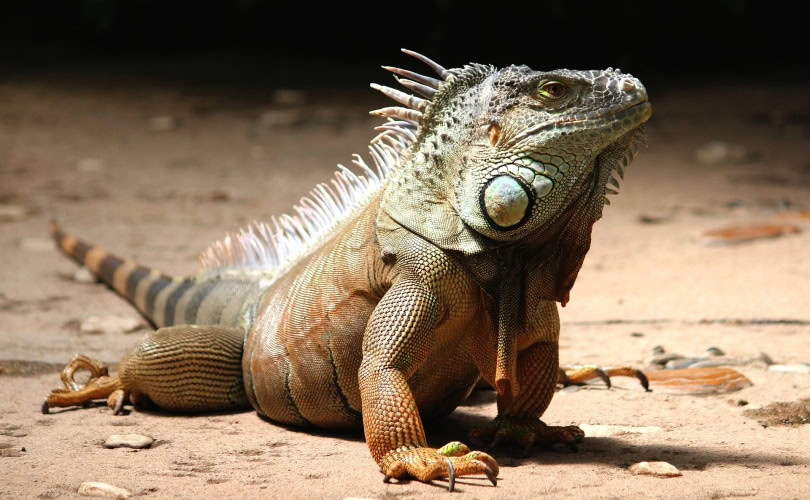
As we mentioned earlier, wild iguanas will primarily eat plants that they can find easily. Their diet consists of mostly leaves, but it will also eat buds, fruit, and seeds. Your pet iguana will need to eat a similar diet.
Dark Green Vegetables
Most experts suggest that vegetables should make up 80% to 90% of your pet iguana’s diet. Dark leafy foods like collard greens, clover, watercress, celery greens, dandelion greens, parsley, cilantro, and Chinese cabbage all make great choices and will help keep your pet healthy.
Calcium-Rich Vegetables
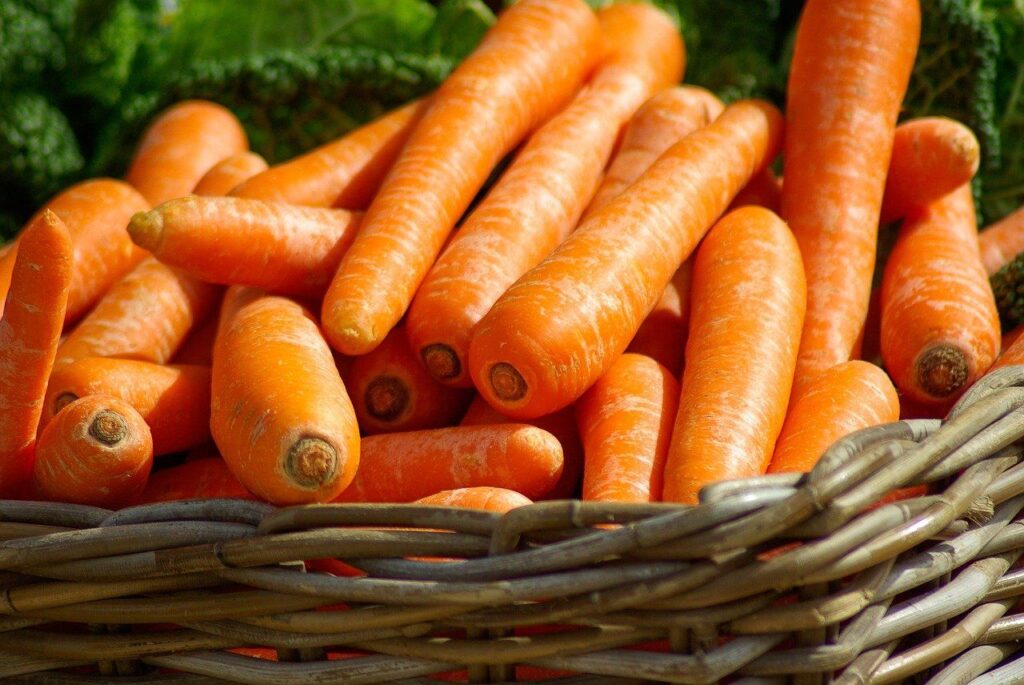
When choosing something to mix with the dark greens to provide variety, most experts recommend choosing a vegetable high in calcium. Suitable choices include beet greens, mustard greens, kale, parsley, romaine lettuce, asparagus, cucumbers, mushrooms, carrots, broccoli, and more.
Other Vegetables
You can also add a small number of yellow vegetables to add variety to your pet’s diet. These choices include yellow squash, zucchini squash, butternut squash, bell peppers, and green beans.
Vegetables to Avoid
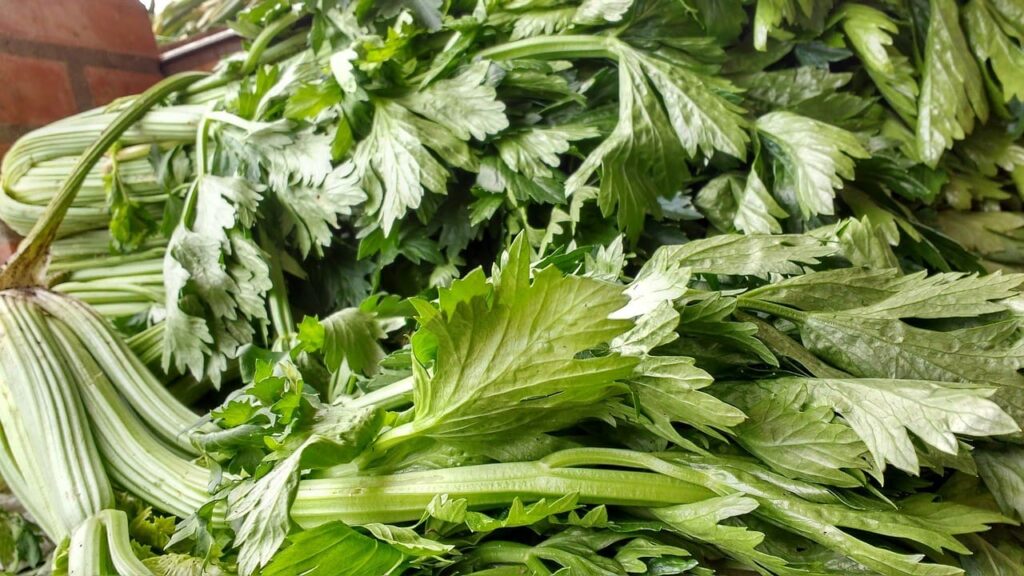
You want to avoid vegetables that aren’t high in nutrients and are mostly water. Vegetables with little nutritional value include iceberg lettuce and celery.
Fruits
Experts say that fruit can make up 10% to 20% of your pet iguana’s diet to help add variety. Good fruits to feed iguanas include apples, peaches, tomatoes, kiwis, apricots, blueberries, and more.

Can an Iguana Eat Animal Protein?
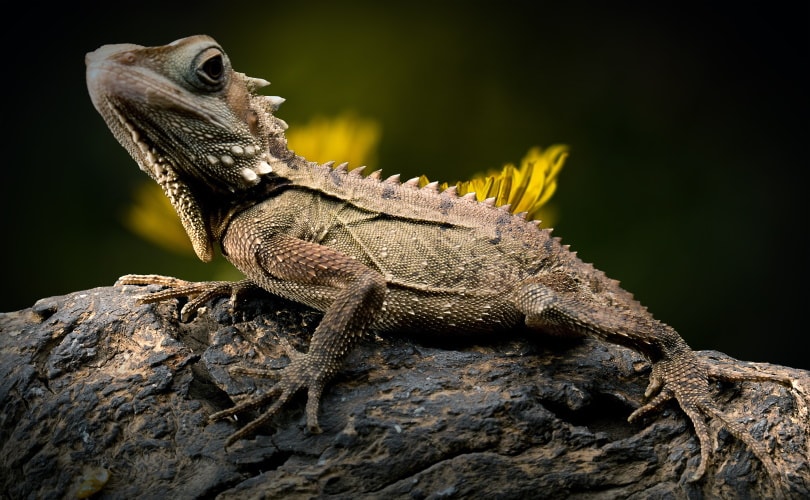
Since your iguana is a strict herbivore, you should limit the animal protein intake to less than 5% of its diet. Most dog and cat foods will be too high in protein and can cause digestive problems, though iguanas might enjoy a few crickets, mealworms, and even pinky mice on occasion. However, this food should be limited and rarely provided.
Does My Iguana Need Water?
Yes. Your iguana will need constant access to fresh, clean water, not only to drink but to bathe in to stay cool. Iguanas can absorb water through the skin, so a heavy bowl of water that won’t spill and frequent spraying with a water bottle is required.
What Is Metabolic Bone Disease?
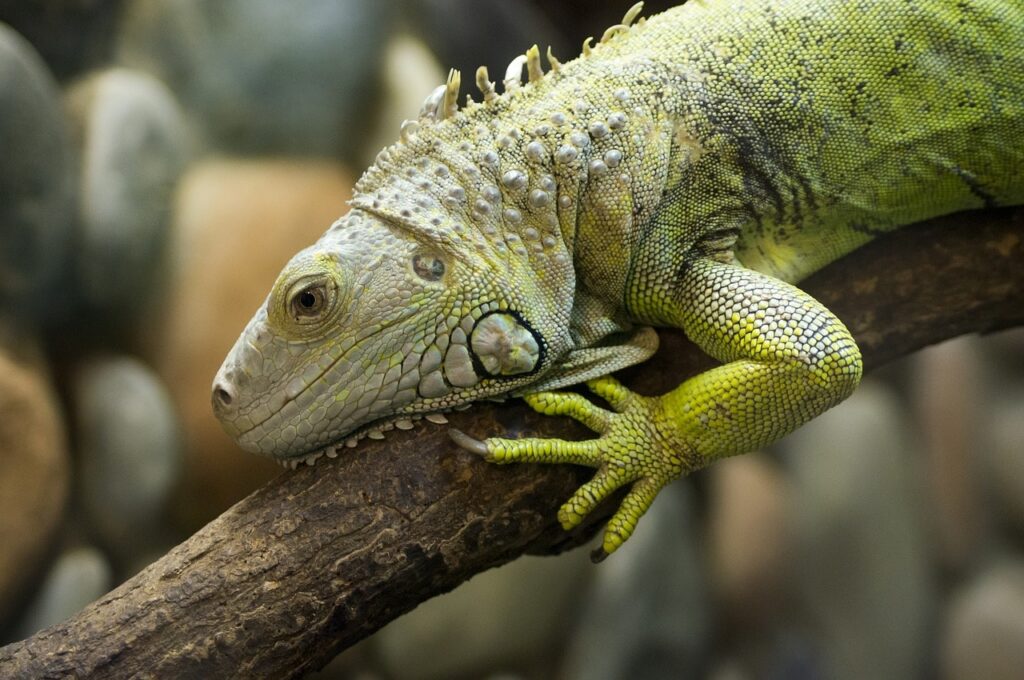
Metabolic bone disease (MBD) is common in many pet reptiles and results from an insufficient calcium supply in the diet. The lack of calcium causes the bones to become soft and brittle and, in the advanced stages, may render your iguana immobile. The best way to avoid MBD is to feed your pet food high in calcium.
Calcium-Phosphorus Ratio
Another thing you will need to watch out for is the calcium-phosphorus ratio. You only want to serve foods that have two parts calcium to one part phosphorus. You need to watch this ratio because phosphorus binds with calcium and prevents it from getting absorbed by your pet, leading to MBD.
Supplements
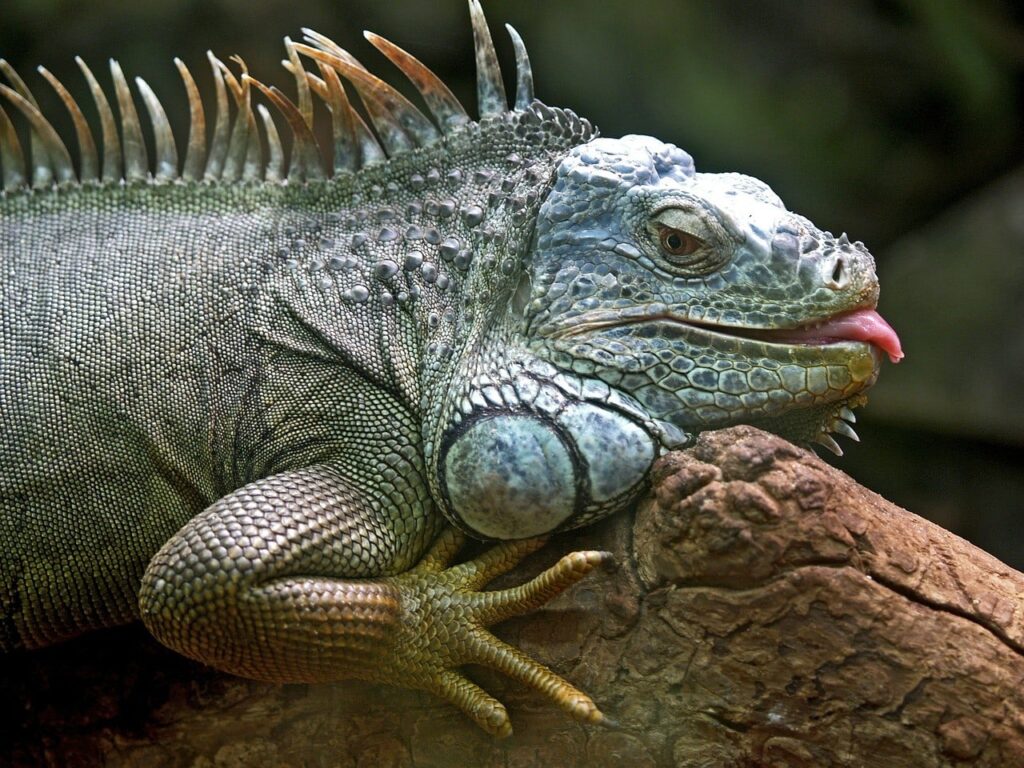
Since your iguana is prone to MBD, most experts recommend dusting the food with a reptile grade calcium supplement that does not contain vitamin D3 every few days to help keep your pet healthy. Only provide vitamin D3 while your pet is still growing.
- Here’s another interesting read: Can Iguanas Eat Avocado? What You Need to Know!

Final Thoughts
As long as you provide your pet with a diet with plenty of high-calcium dark green vegetables like dandelion greens, your pet should live a long and healthy life with little risk of MBD. You can add variety by adding in other vegetables, like carrots, kale, parsley, and broccoli, along with a small number of fruits, like peaches or blueberries. However, avoid too much animal protein and low-quality vegetables like leaf lettuce and any food that has more phosphorus than calcium.
We hope you have enjoyed reading over our look into the eating habits of the iguana and found it helpful.
You may also want to know:
Featured Image Credit: ThuyHaBich, Pixabay
